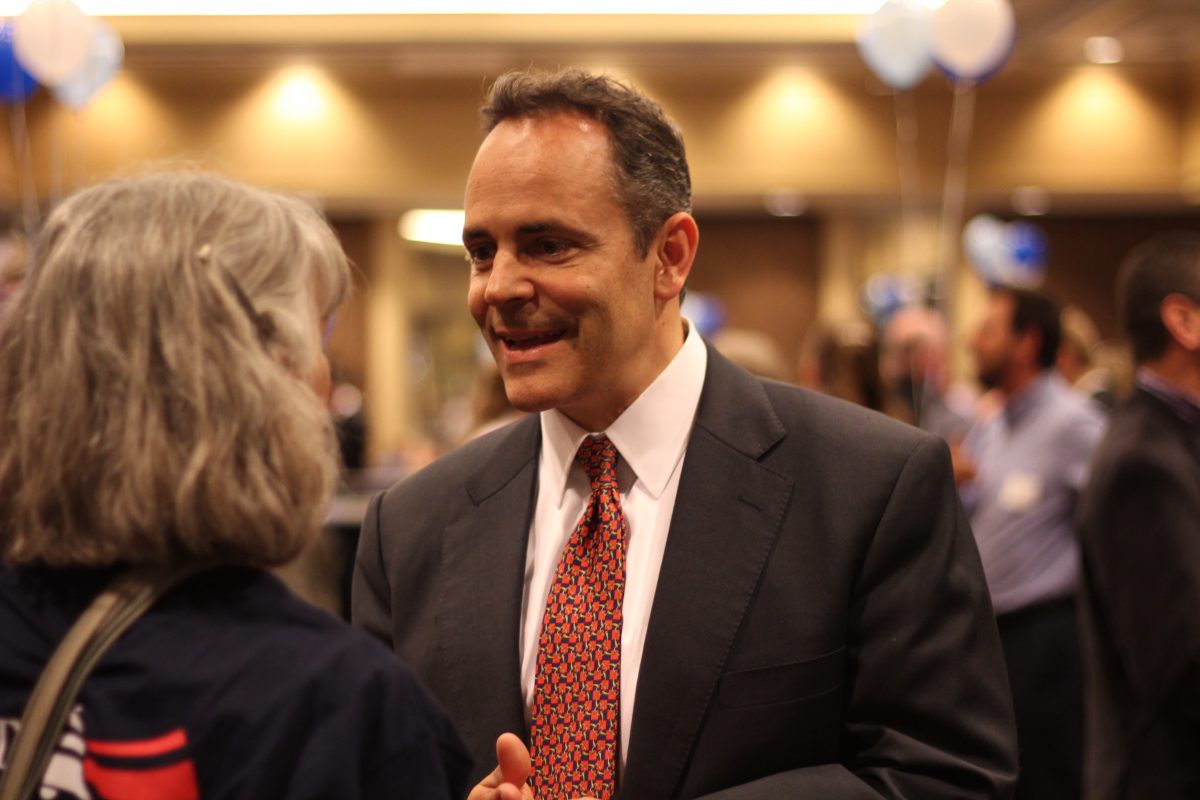Sen. Elizabeth Warren (D-Mass.) outlined her plan to tackle the opioid epidemic during a campaign stop Friday in a small West Virginia town where many attendees were just happy to see a politician show up.
Kermit, with a population of 400, has been held up as an example of the nation’s opioid epidemic since it was reported that nearly 9 million hydrocodone pills were shipped to a small pharmacy in the town by the McKesson Corporation in the course of two years. Locals and people from the surrounding area gathered at the town’s fire and rescue station to hear Warren’s proposals, eager that someone from Washington was willing to listen to their concerns.
Jada Hunter, 74, is a retired principal and president of the West Virginia chapter of the American Association of University Women. She said that after watching her neighborhood “change for the worst,” she’s just happy to see someone put forth a plan to address the opioid problem.
“Too often people in our area feel neglected,” she said. “To me, just the fact that she has [an opioid policy plan], that’s enough for me.”
Warren is the second Democratic presidential contender to roll out such a plan this year, though this is an updated version of one she first introduced alongside Rep. Elijah Cummings (D-Md.) last year. Sen. Amy Klobuchar (D-Minn.) unveiled a proposal to combat drug addiction and mental health issues last week.
Durand Warren, 46, the director of behavioral services at the Williamson Health and Wellness Center, said that if someone wants to bring money to help fight the area’s opioid crisis, “I don’t care what party you are.”
“I don’t care who you support,” said Warren, who’s not related to the senator. “My main concern is keeping people alive.”
Wayne Williamson, 42, is a captain at the fire station, which is staffed by volunteers. He said Friday’s event wasn’t confirmation that anyone who worked at the fire department would vote for Warren, and expressed disappointment that a small group of Trump supporters protested outside Warren’s event.
“I wish people would just let these candidates come speak, do their thing, and let them go on to their next stop,” he said, noting that “this is Trump country and we know it.”
“Not only is she a presidential contender, she is a United States senator, and to get somebody from that forum to come down to our little town and be seen, you know, it just kind of puts us on the map and lets us know that people are out there in the big seats that know where we’re at now,” he said.
Williamson said if Warren’s opioid policy proposal becomes a reality, he hopes funds will help small towns like Kermit build in-bed facilities for addicts.
“If you can save five out of 20 people, that’s five, you know? As it is right now, you’re saving zero,” Williamson said, citing a lack of rehab facilities where people are comfortable going for help.
Dr. J.W. Endicott, who lives in Kermit, agreed that more treatment facilities could help patients in the area, especially those with financial burdens. He said he’s referred patients to outpatient clinics that are 30 miles away or more, which can be difficult for people who struggle to pay for food, vehicles and basic living expenses.
Warren received cheers when she told the crowd her plan would largely bypass state government to get funding to smaller communities like Kermit.
“To deal with watching your friends and neighbors die from something like this ― this isn’t right,” she said. “We’ve got to go community by community to fix this.”
This article was originally published by the Huffington Post, © 2019 Paige Lavender/HuffPost. Used with permission.



